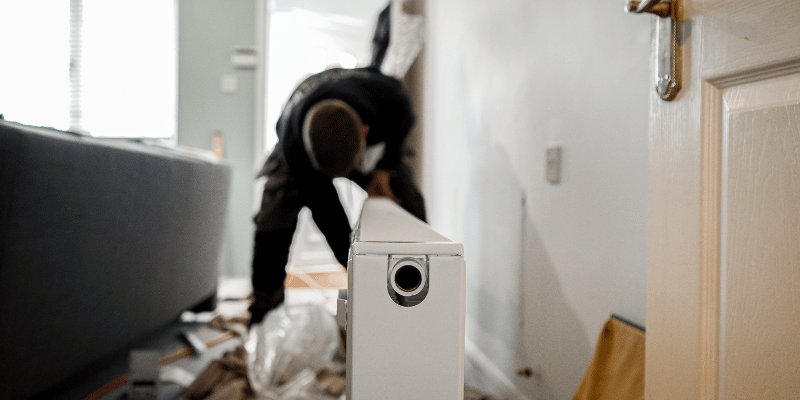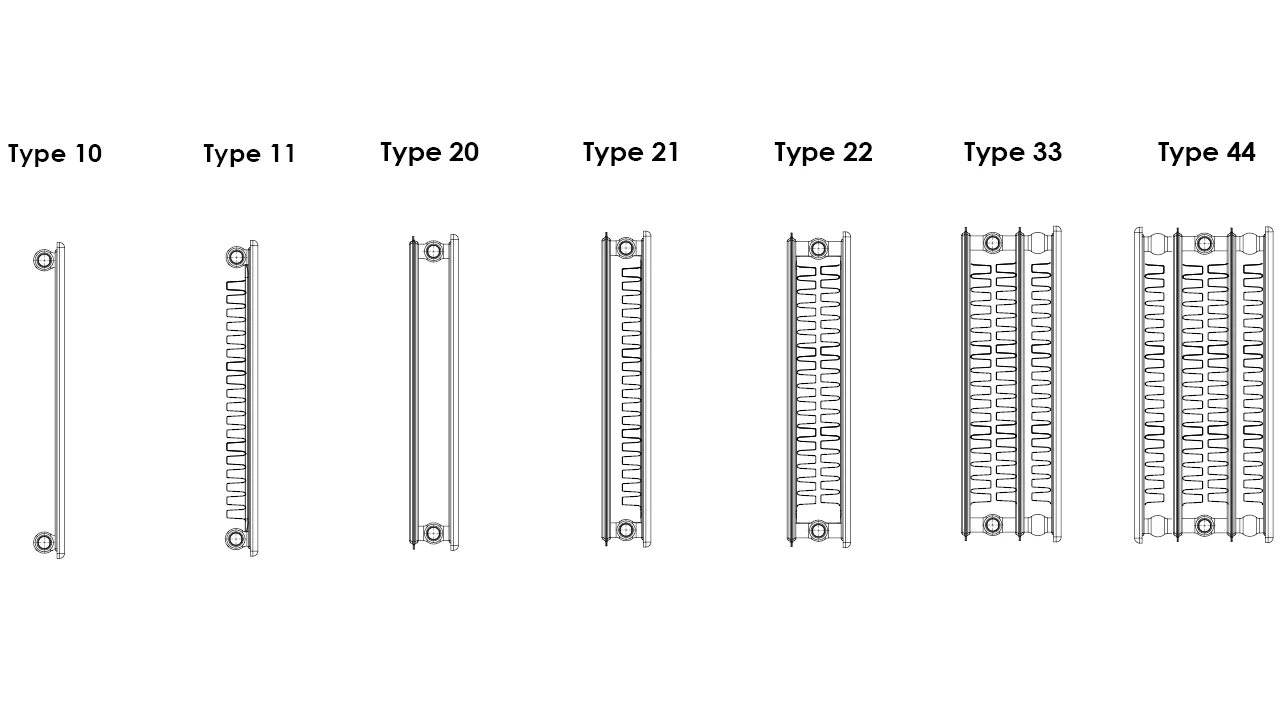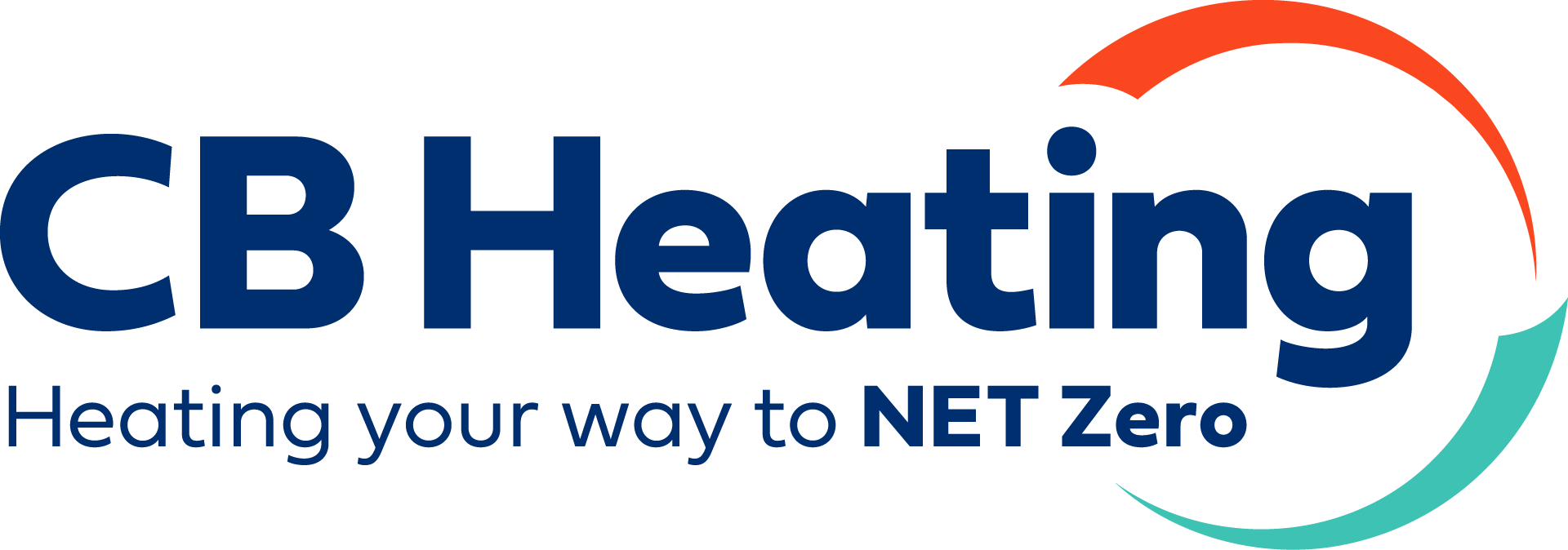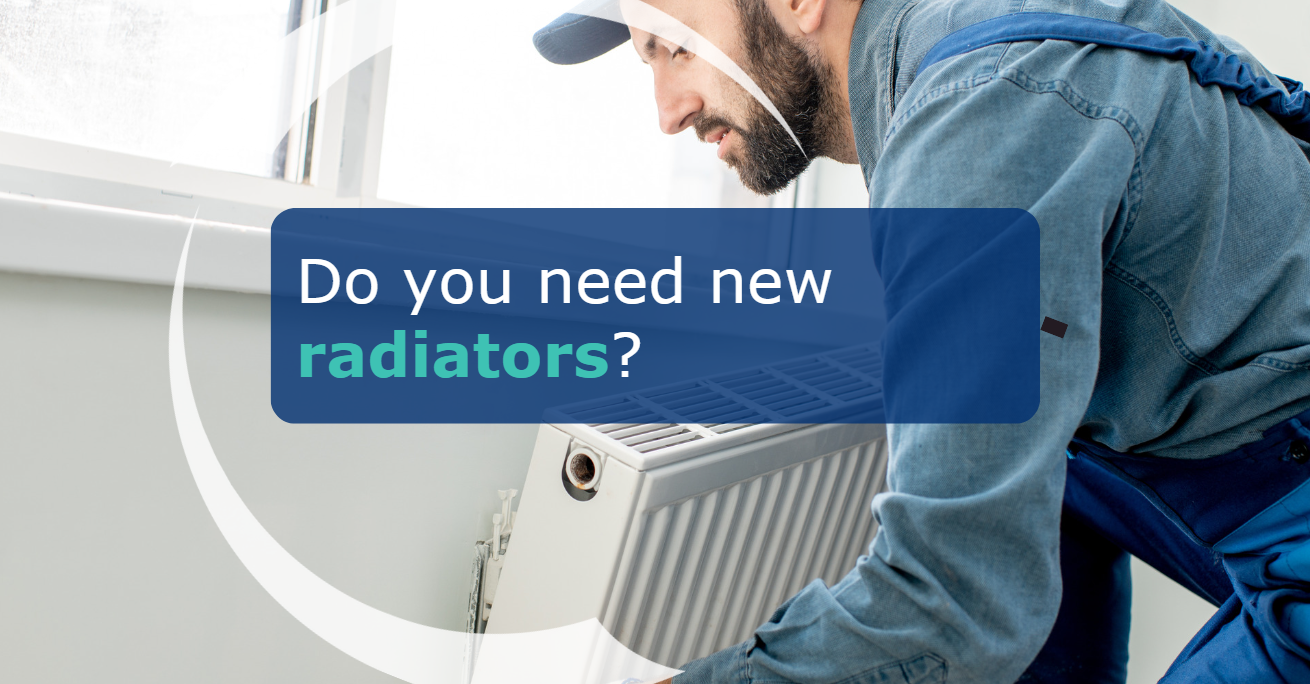Do you need new radiators for air source heat pumps?
In a word, no! However, the performance of your heat pump system hinges on the compatibility and efficiency of your radiators. Identifying whether your current radiators are single, double, or triple panel, with or without convectors, will help you decide if they meet the requirements for effective heat distribution with your new system.
Larger radiators with convectors are generally the best radiators for air source heat pumps, while designer radiators, towel rails, and cast-iron models should be avoided due to their inefficiency with heat pump systems. Careful evaluation and measurement of your existing radiators will ensure that your heating system operates at its best, providing comfort and energy efficiency.
Can I use my existing radiators?
Yes, you can but there are some caveats. Concerns about having to upgrade your radiators when considering making the jump to an air source heat pump are common. Sometimes, this concern puts people off the idea entirely – but it doesn’t have to!
Unless your radiators are conventional-type, 30+ year-old models, you don’t always need to upgrade your radiators for an air source heat pump system to work. It just may work less efficiently than it otherwise would.
Even with outdated panel radiators, the heat pump system will still operate but may be unfeasible to run due to increased costs. Therefore, while it is possible to use existing radiators, upgrading them can enhance efficiency and reduce running costs significantly.
What are the best radiators for air source heat pumps?
The best radiators for air source heat pumps are those which have a larger surface area.
Radiators which are double or triple panelled work very well. Radiators with low surface areas may not work as efficiently as those with larger areas so it’s an important upgrade to consider. Our experts will advise you on the best course of action. There is a handy table explaining which radiators work best below.
When choosing radiators for a heat pump system, bigger is generally better. Larger radiators have a greater surface area, which is crucial for the lower operating temperatures of heat pumps.
Here’s a breakdown of different types of radiators and their implications:
| Radiator Type | K Naming Convention | Configuration (Panels & Convectors) | Heat Output (BTU/hr per ft²) | Suitability with ASHP |
| Type 10 | K1 | 1 Panel, 0 Convectors | Low | Less suitable due to low heat output, however can be suitable for small rooms |
| Type 11 | K1 | 1 Panel, 1 Convector | Moderate | Moderate suitability |
| Type 21 | P+ | 2 Panels, 1 Convector | Moderate to High | Suitable, better efficiency |
| Type 22 | K2 | 2 Panels, 2 Convectors | High | Very suitable for ASHP |
| Type 33 | K3 | 3 Panels, 3 Convectors | Very High | Highly suitable for ASHP |
| Type 44 | K4 | 4 Panels, 4 Convectors | Extremely High | Extremely suitable, best for ASHP |
To summarise; look for radiators for your air source heat pump system that have the largest surface area possible for each room in the house. Try and steer clear of designer radiators or small radiators in large rooms which won’t give you the heat output you need to keep your home warm. The larger the surface area of your radiator, the more efficient your new air source heat pump system will be. We can always help point you in the right direction if you need advice.
Will radiator upgrades reduce costs?
Upgrading radiators can lead to a more efficient system, lowering energy bills and improving overall comfort.
If efficiency and running costs are important to you, it may be wise to look at the type of radiators you have, how many, and whether upgrading will save you more in the long run.
Upgrading radiators can lead to a more efficient system, lowering energy bills and improving overall comfort.
If the added cost of upgrading radiators isn’t something you can absorb now, it may be possible to keep your radiators and opt for a higher flow temp system. To find out more, speak to one of our experts.
Benefits of upgrading radiators for a heat pump
It’s all about making the most of your new heat pump and its efficiencies. The key to getting air source heat pumps working as efficiently as possible is by making the heat of the water flowing through the heating pipework (the “flow temperature”) as low as possible to comfortably heat your home.
When a gas boiler is turned on, the gas will ignite and heat the water up to potentially 80°C or more before pumping that water around the system pipework to your radiators. This high output might seem like a benefit but is often a requirement due to the lower output of the radiators.
Another problem is that properties with modern radiators tend to experience frequent cycling because gas boilers work at higher flow temperatures. That is, the boiler will turn on, output a lot of heat in a short amount of time, turn off again until that heat has dissipated, and repeat the cycle. This works well with a gas boiler but not a heat pump! Because heat pumps work by tapping into a temperature difference from the outside air, they have a more limited maximum output temperature than a gas boiler. However, this also means they can provide a consistent temperature over a longer period, avoiding the inefficient heating cycling issue.
For example, if you’re able to run your air source heat pump’s flow temperature at 45°C and the radiators are able to effectively release that heat, then your heat pump can run continuously with a much lower energy draw.

4 reasons why you should consider upgrading your radiators as part of a heat pump installation
Whenever we feel it’ll benefit you to upgrade, we’ll always recommend that you upgrade your radiators before installation for a few reasons.
1. Effective system planning
System designers can effectively plan system output and operational efficiency by pairing particularly suitable heat pumps and radiators for your home, resulting in a much more efficient system.
2. Effective project management
While radiator replacements add to the overall time that an installer has to be present, installing them as part of the same project lets the engineer better plan that time to get the job done as quickly as possible. This avoids the need for a separate engineer in the future who might need extra time to familiarize themselves with your home’s system.
3. Lower operational cost
Getting the maximum efficiency possible out of your heat pump system, over the whole year, means that you could save significant amounts on your energy bills. Depending on a few factors, of course.
For example: if you’re replacing an old G-rated gas boiler and keep your energy tariff the same, you could be saving up to £240 a year on energy bills. For more information on what affects heat pump efficiency, read our dedicated efficiency page here.
4. Cost can be factored into a financing plan
If approved by our lending partner, you can split the cost of your heat pump investment into monthly repayments over a number of years. And this includes the whole system upgrade. This financing can include the cost of radiator upgrades, allowing you to manage payments more easily.
Identifying what radiators I have
To ensure you have the right radiators for your heat pump, it’s crucial to identify the type you currently have. Here’s a guide to help you:
- Single panel radiators: One flat panel, usually slim and lightweight.
- Double panel radiators: Two flat panels, back-to-back, thicker than single panel radiators.
- Radiators with convectors: Panels with zig-zag metal fins (convectors) between them.
- Triple panel radiators: Three panels, very thick, and heavy.

Image source: hudevad.com
Underfloor heating
If you have underfloor heating, this will work alongside air source heat pump, but we will need to understand the output (kw) to design a system for you. Spacings of underfloor heating pipework and bore size are key to making this work. If you don’t have underfloor heating, it’s also worth remembering that this kind of system is expensive to retrofit if that is the way you want to go forward.
Why size matters
The larger the radiator, the better it will perform with a heat pump. This is because heat pumps operate at lower temperatures compared to traditional boilers, and larger radiators can dissipate heat more effectively at these lower temperatures.
Radiator types to avoid
Aluminium radiators: Conduct heat more efficiently but can also cool down much quicker. They are also more expensive than traditional radiators.
Designer radiators: Often prioritise aesthetics over function, with insufficient surface area for efficient heat transfer in a heat pump system.
Towel rails: Typically designed for supplemental heating in bathrooms, not for primary heating, resulting in poor performance.
Cast iron radiators: Though effective in retaining heat, they are slow to warm up and not suitable for the lower temperature output of heat pumps.
Have one of these radiators?
This does not necessarily mean they won’t meet the heat loss of the room, or work with an Air Source Heat Pump system. Our specialist design team will calculate the output and different flow temps of your existing radiators and advise you on weather we think it would be feasible to keep them or recommend swapping them out.
To summarise
Here’s what to consider when thinking about your radiators
- H3 Surface area – This needs to be as large as possible on your radiator to give you the heat you need and the efficiencies you want.
- H3 Flow temperature – The lower the flow temp = the larger the radiator = the more efficient your system will be.
- H3 Material of radiators – In reality, there is no ‘best material’ for radiators to work alongside your heat pump. Surface area is far more important.
So, do I need to upgrade my radiators or not?
Once you have considered the above, you have three options:
- Use your existing radiators – If your radiators are suitable for working alongside your heat pump you can still go ahead. If not, you can choose to have a high temperature heat pump installed to compensate for your radiators. These heat pump systems are more expensive.
- Upgrade your radiators when your air source heat pump is installed – If you need to place old or inefficient radiators this is the best time to do it.
- Update your radiators later – If you set your heat pump to a higher flow temperature, then you may not have to upgrade your radiators. However, this will make your system more expensive to run. The lower the flow temperature = the larger the radiator = the more efficient your system will be.
Ultimately the choice is yours. In some cases, there is no need to upgrade your radiators when installing your new air source heat pump. However, we often find that customers prefer to upgrade their radiators to make the most of their heat pumps’ efficiencies. We are always happy to advise you on the best course of action whatever you decide.



